Search
Did you mean: Oxus?
Search Results

Definition
Ancient Ireland
Ireland is an island country located in the North Atlantic, bounded by the North Channel, the Irish Sea, and St. George's Channel. It is known as Eire in the Gaelic language, which comes from the old Irish Eriu, the name of a daughter of...

Definition
Ancient Israelite Art
Ancient Israelite art traditions are evident especially on stamps seals, ivories from Samaria, and carvings, each with motifs connecting it to more general artistic traditions throughout the Levant. Ancient Israel, and therefore its art...

Definition
Anglo-Powhatan Wars
The Anglo-Powhatan Wars were a series of conflicts between the English colonists of Virginia and the indigenous people of the Powhatan Confederacy between 1610-1646 CE. The Powhatan Confederacy (of over 30 tribes) was led by the chief Wahunsenacah...
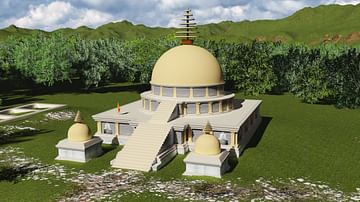
Definition
Taxila
When it comes to ancient history, Pakistan contains its fair share of treasures, one of the prominent of these being the ancient metropolis of Taxila. It is a city of the Gandharan civilization, sometimes known as one of its capitals, whose...
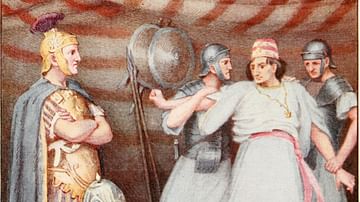
Definition
Jugurtha
Jugurtha (r. 118-105 BCE) was King of Numidia in North Africa and grandson of the first Numidian king Masinissa (r. c. 202-148 BCE). He was the illegitimate son of Mastanabal, Masinissa's youngest son, and was the least likely of Masinissa's...
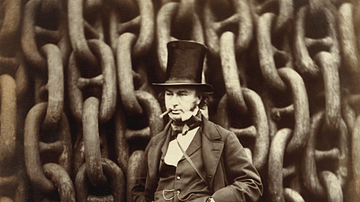
Definition
Isambard Kingdom Brunel
Isambard Kingdom Brunel (1806-1859) was a British engineer and a key figure of the British Industrial Revolution (1760-1840). Brunel masterminded the Great Western Railway from London to Bristol, designed and built innovative giant steamships...
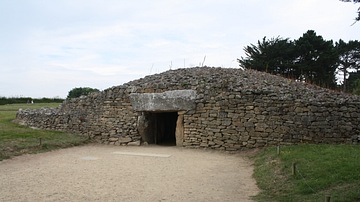
Definition
Locmariaquer
Locmariaquer is a Stone Age site in north-west France distinguished by its two large stone tombs and massive granite standing stone or menhir. The monumental structures, all built within metres of each other, were built in the 5th millennium...
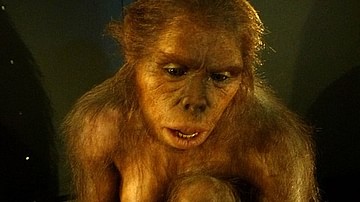
Image
Homo Habilis Reconstruction
Homo habilis reconstruction in the Museo de la Evolución Humana, Burgos, sculpture by Elisabeth Daynes (2010) based on the KNM-ER 1813 cranium (Koobi Fora, Kenya, dated 1.9 Ma).

Image
Oldowan Chopper Tool
An example of an Oldowan stone chopper tool. From the Atlantic-Saharan region. (National Archaeological Museum, Madrid)
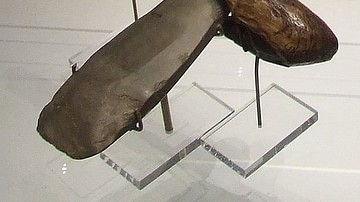
Image
Neolithic Stone Axe with Wooden Handle
A Neolithic stone axe with a wooden handle, found at Ehenside Tarn. It is on display in the British Museum, London.